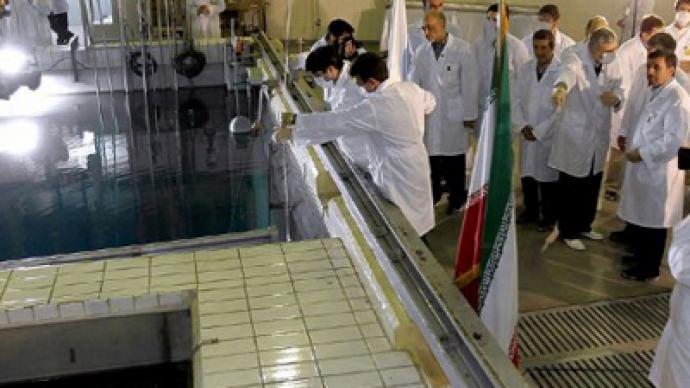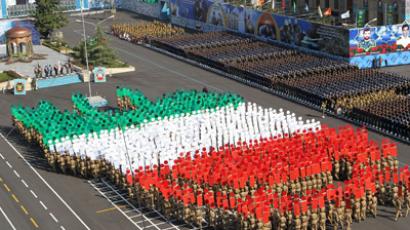Iran faces arm-twisting demands ahead of key nuclear talks

The six-party party talks on Iran’s nuclear program, called “the last chance” by the West, may now be in jeopardy. The new requirements by the US and Israel towards Iran’s nuclear program have been rejected by the country as “irrational.”
Israeli defense minister Ehud Barak is now demanding that Tehran discloses the entire history of its nuclear activity and opens all its nuclear facilities to the International Atomic Energy Agency (IAEA).The demand comes a day after media reports that the US and its Western allies plan to put forward a new requirement for Iran to immediately close and ultimately dismantle its recently completed nuclear facility at Fordo. Located deep in the mountains, the Fordo research center has been built underground so that the enemy cannot attack and destroy it. Its inaccessibility to potential air strikes has been of particular concern to the US and Israel.Iran has called the demands “irrational” with the head of Iran's Atomic Energy Organization, Fereydoon Abbasi Davani, saying that Fordo was built so deep underground only because of the constant threat of attacks."If they do not threaten us and they guarantee that no aggression will occur, then there will be no need for countries to build facilities underground,” he said. “They should change their behavior and language." The talks between Iran and representatives of the five permanent members of the UN Security Council and Germany, known as P5+1 are scheduled for April 13-14 in Istanbul. However, Turkey has not yet officially confirmed it will host the negotiations.The US and Israel are set to demand that Iran halts the production of uranium which they consider just a few steps from weapons grade and also end the shipment of existing stockpiles “to a neighboring, devoted country.”"We do not see any rationale for such a request from the P5+1," Davani said. He added that Iran would continue producing small amounts of 20 per cent enriched uranium to fulfil its medical needs. Tension around Tehran has been running high recently, with aggressive rhetoric from both sides. Following the new set of sanctions and the oil embargo, the West now sees the upcoming negotiations as the “last chance for talks.”But the latest demands from the US and Israel that Iran abandons its newly completed site make any chance of agreement at the meeting between Iran and the six world powers unlikely. The reaction of the Iranian authorities during the talks cannot be predicted, believes Leonid Gusev from the Moscow State University of International Relations.“Some believe Iranians may make some concessions,” Gusev told RT. “They did this repeatedly over the past years. When someone pressed really hard on them, they back-pedaled slightly.”“On the flip side,” Gusev added, “being under pressure, Iranians want to show that they can hold ground and resist this pressure.”Such categorical demands for a halt to Iran’s nuclear program are a very tough psychological subject and the country will most likely adopt the “policy of flexible response” only in the event of inevitable military attack from the US or Israel, Gusev believes.But even if this “last chance” for peaceful solution is wasted, the Nobel Peace Prize winning US president, who is running for his second term, is unlikely to openly call for an attack on Iran, Gusev believes. Alas, the US would gladly let Israel do the dirty work, if Iran’s nuclear ambitions cross a certain “red line,” he added.The problem is that the US will decide where this line should be drawn, Gusev said. Iran has repeatedly claimed they do not have enough capabilities to enrich uranium to the 90 per cent purity level needed for it to be weapons grade. According to official data Iran has barely more than 100 kilograms of 20 per cent purity uranium fuel stockpiled, which would not be enough even for a single nuclear weapon.














